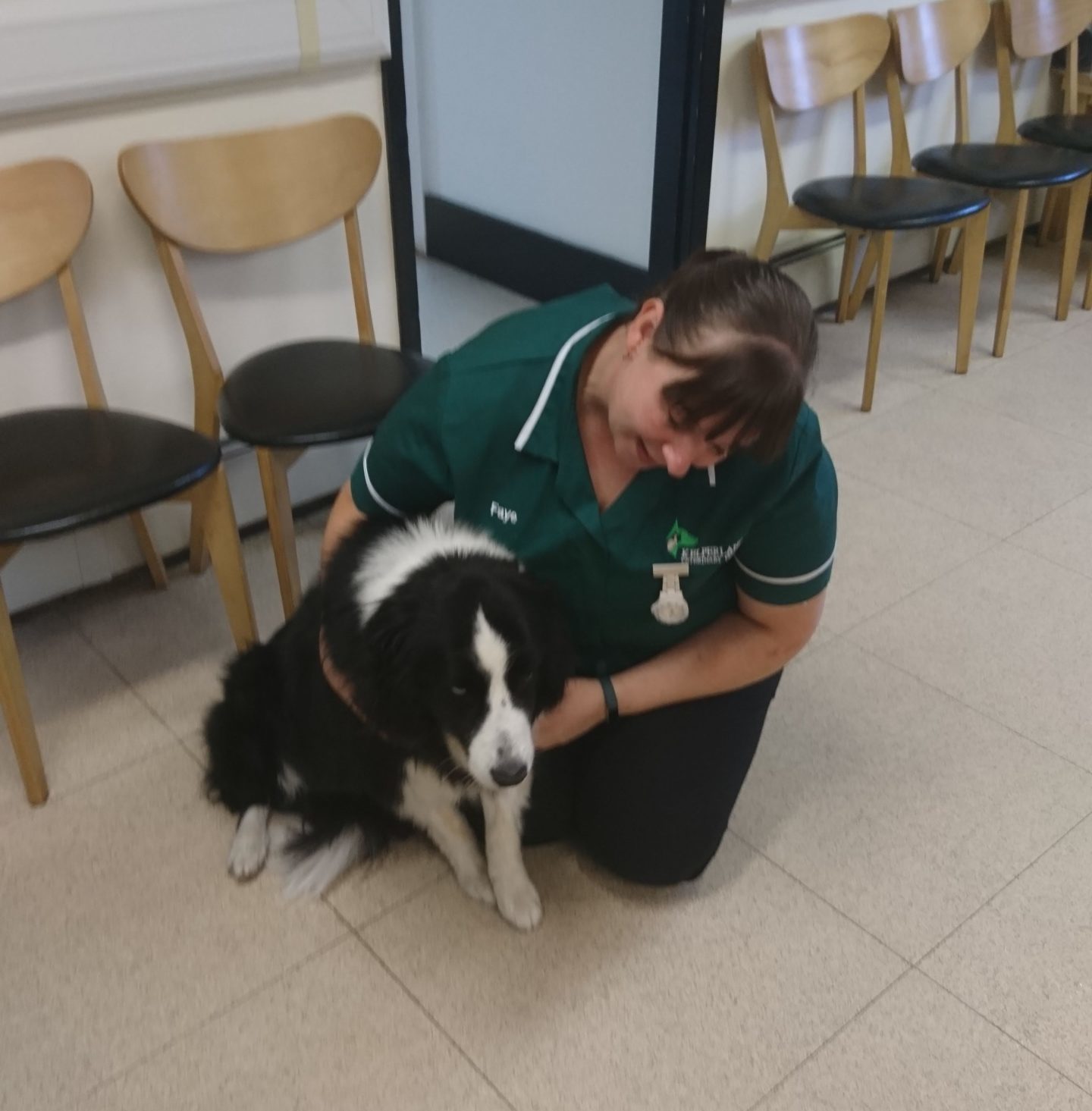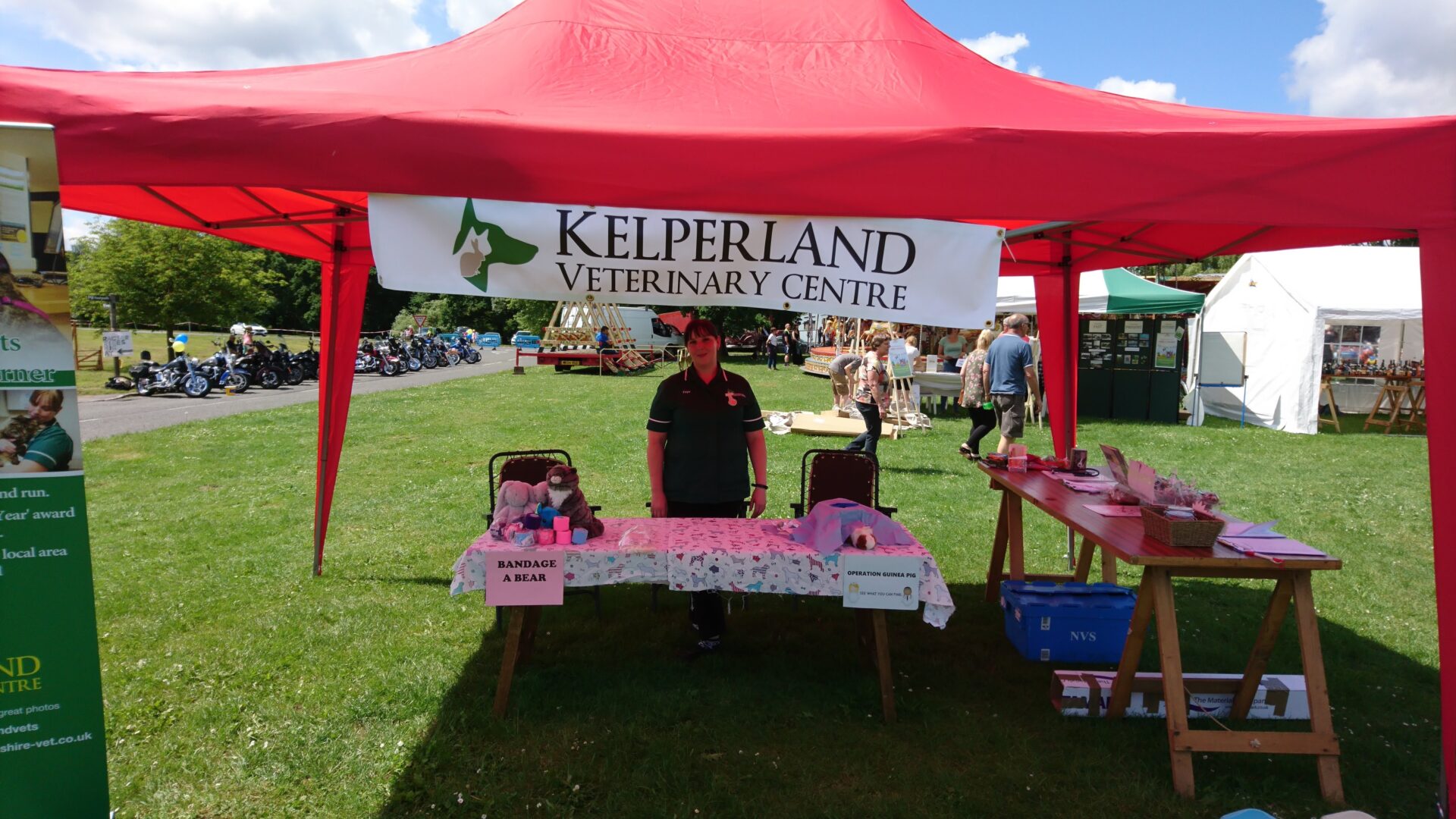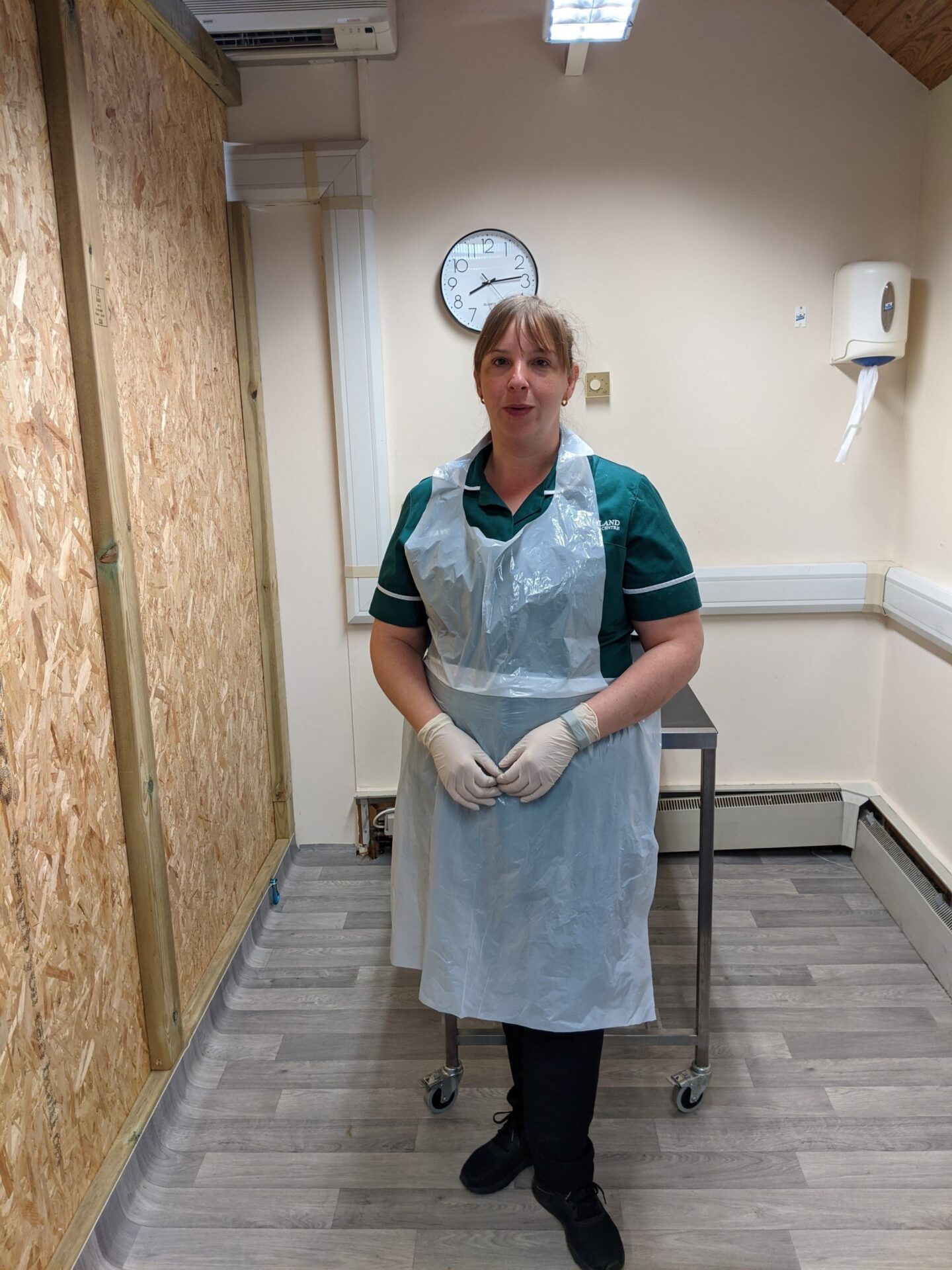May is Veterinary Nursing Awareness Month and to celebrate this we had a chat with Faye who is a Registered Veterinary Nurse at Kelperland Vets.
Hi Faye, tell us a little bit about yourself.
Hi I’m Faye, a RVN with a nurses certificate in animal behaviour. This year I also undertook the clinical coach role at the practice which means I’m passing my knowledge and skills onto the next generation of vet nurses. I work at Kelperland Vets in Berkshire. We are a small animal practice which means we mainly deal with dogs, cats and small furries.
What made you choose this career path?
I always grew up with lots of animals in the house and when I was about 13-14 years old our pet rabbit got very ill and we had to take her to the vets. I became very interested in how they made her better and I wanted to be able to do that. I spoke to a friend at the time who was actually a vet nurse and she arranged for me to go and do some work experience at her practice which I absolutely loved and so decided it was the career choice for me.
How long have you been doing it for?
I qualified in August 2000 but actually started my training in 1996 so have been working as a vet nurse for 25 years.
What does a typical day look like for you?
A typical day depends on the shift pattern. The early shift nurse normally comes in, opens up and does any inpatient care first thing such as giving medication and cleaning out kennels. They then get theatre set up ready for the days procedures. I would then help the vet in surgery with anaesthesia and patient care setting up drips, placing catheters and giving medication. The afternoon is normally clean up time – there is always lots of cleaning to be done! Late nurse is normally a bit of a floating nurse, doing a bit of everything. I would normally come in and make up drugs for owners to collect. Followed by admin tasks like insurance forms. Afternoon is normally spent helping the vets with consults and cleaning.
What do you love the most about your job?
I love knowing that I make a difference when you have a really poorly animal in the hospital and you have been the nurse responsible for their care and they go home better, it is a very rewarding job. I also love the variety as you never really know what will happen from one day to the next.
What do you least enjoy?
Euthanasia is obviously a very sad but important part of our job. It is a very difficult thing to do but you are helping to relieve pain and suffering and that is important.
Do you have any pets of your own?
I currently own 3 cats. Stanley, Hank and Dale. It’s a bit of an occupational hazard as I seem to acquire them from work.
What is the most unusual pet you’ve come across at your practice?
The most unusual pet we have had at the surgery was a peacock.
How have you and your team adapted during the pandemic?
We have had to adapt massively during the pandemic. We are a very small team and have become a lot tighter as a team. It started off with us being in two teams, working one day on one off which was hard work as the work day was at least a 12 hour day and doing the work that 6 people normally do in a day to just being 3 of us. We wear full PPE all day and we have had to adapt a lot of our consults, moving to video or phone calls. We are not able to have clients in the practice which posts its own set of complications, so vets have been consulting outside or over the phone with a nurse holding peoples pets. We have been posting out medications and taking payments over the phone for people unable to get to the surgery. It has been a massive learning curve but am grateful that I was still able to go to work and have a job to do.

